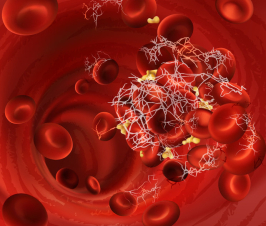Node Smith, ND
A recent study has shown that children experiencing symptoms of autism spectrum disorder (ASD) are more than twice as likely to also have a food allergy than other children.1 The research was conducted at the University of Iowa. The study furthers the body of research explaining dysfunction of the immune system as a risk factor of ASD. The study has been published in the Journal of the American Medical Association’s JAMA Network Open.
Study looked at roughly 200,000 pediatric cases from the U.S. National Health Interview Survey (NHIS)
The study looked at roughly 200,000 pediatric cases from the U.S. National Health Interview Survey (NHIS). The ages of the children were between 3 and 17 years. 11.25 percent of children with a diagnosis of ASD also suffered from a diagnosed food allergy. This is more than double the rate seen in children not diagnosed with ASD – 4.25 percent. In addition, children with ASD were also significantly more likely to suffer from respiratory allergy (18.73%), and skin allergies (16.81%), than other children (12.15% and 9.91%, respectively).
Study does not conclude any causal basis for this relationship
The study does not conclude any causal basis for this relationship, though other research has theorized potential causes for this link between allergy and ASD. Some of these possible links include an increased production of antibodies, neurodevelopmental abnormalities, gut microbiome changes, and immune system overreactions leading to altered brain function.
It is not known what is occurring first, food allergy or ASD, additional longitudinal studies required
The authors of this paper comment that it is not known what is occurring first, food allergy or ASD, and that further longitudinal studies are necessary, following children since birth, to determine a timeline of the relationship. But this is research indicating a possible shared mechanism between atopy and ASD.
Source:
- Xu G, Snetselaar LG, Jing J, Liu B, Strathearn L, Bao W. Association of Food Allergy and Other Allergic Conditions With Autism Spectrum Disorder in Children. JAMA Network Open. 2018;1(2):e180279. doi:10.1001/jamanetworkopen.2018.0279
Image Copyright: <a href=’https://www.123rf.com/profile_udra’>udra / 123RF Stock Photo</a>
 Node Smith, ND, is a naturopathic physician in Portland, OR and associate editor for NDNR. He has been instrumental in maintaining a firm connection to the philosophy and heritage of naturopathic medicine among the next generation of docs. He helped found the first multi-generational experiential retreat, which brings elders, alumni, and students together for a weekend camp-out where naturopathic medicine and medical philosophy are experienced in nature. Four years ago he helped found the non-profit, Association for Naturopathic ReVitalization (ANR), for which he serves as the board chairman. ANR has a mission to inspire health practitioners to embody the naturopathic principles through experiential education. Node also has a firm belief that the next era of naturopathic medicine will see a resurgence of in-patient facilities which use fasting, earthing, hydrotherapy and homeopathy to bring people back from chronic diseases of modern living; he is involved in numerous conversations and projects to bring about this vision.
Node Smith, ND, is a naturopathic physician in Portland, OR and associate editor for NDNR. He has been instrumental in maintaining a firm connection to the philosophy and heritage of naturopathic medicine among the next generation of docs. He helped found the first multi-generational experiential retreat, which brings elders, alumni, and students together for a weekend camp-out where naturopathic medicine and medical philosophy are experienced in nature. Four years ago he helped found the non-profit, Association for Naturopathic ReVitalization (ANR), for which he serves as the board chairman. ANR has a mission to inspire health practitioners to embody the naturopathic principles through experiential education. Node also has a firm belief that the next era of naturopathic medicine will see a resurgence of in-patient facilities which use fasting, earthing, hydrotherapy and homeopathy to bring people back from chronic diseases of modern living; he is involved in numerous conversations and projects to bring about this vision.

















